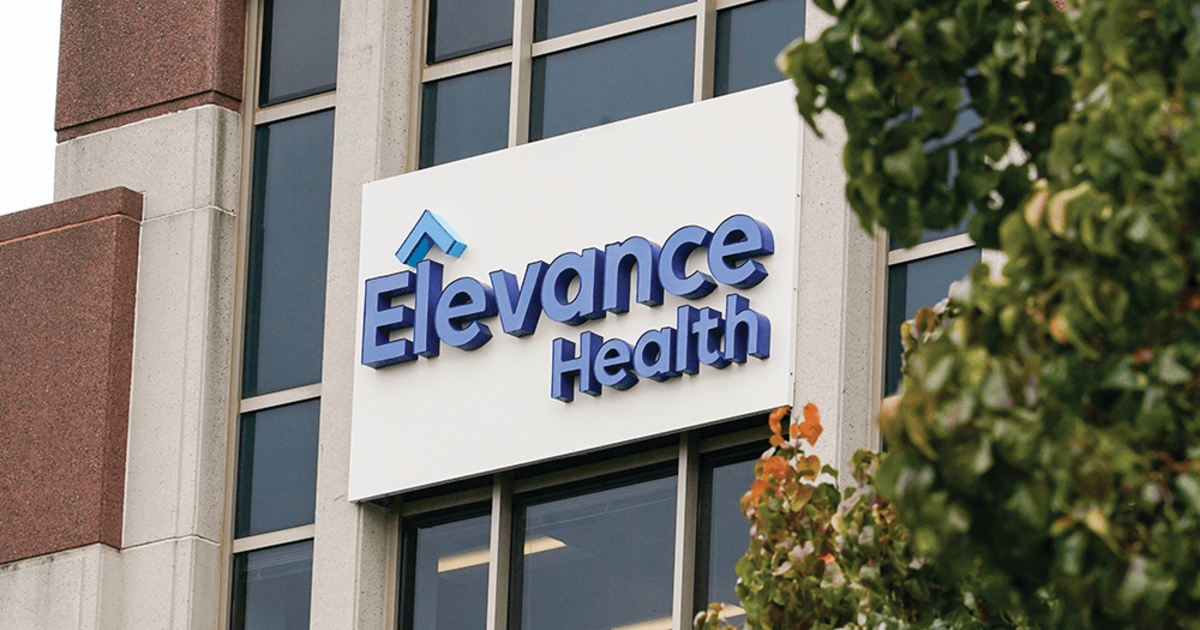Elevance Health is focusing on healthcare services to offset declines in its employer health benefits segment, executives said Wednesday.
The company, which operates Blue Cross Blue Shield plans in 14 states, on Wednesday reported first-quarter earnings of $2.8 billion, or $8.30 per share, a 16.6% year-over-year increase. Quarterly revenue increased 10.5% to $41.8 billion, driven by membership growth among exchange, Medicaid and Medicare Advantage customers, premium increases and higher pharmacy scripts revenue from CarelonRx, its pharmacy benefit manager business.
Membership increased to 48.1 million customers, up 2.8% despite declines in business customers. Enrollment in its commercial, risk-based business declined 5.7% to 3.7 million and its fee-based employment business remained flat at 20.2 million members.
Elevance is focused on marketing its pharmacy benefit management, genetic testing, home health and other services to employers, including to employers that contract with other insurers, Peter Haytaian, president of Carelon and CarelonRx, said during the company’s earnings call. The company launched the services in its government-sponsored business and has expanded them to commercial enrollees.
During the call, executives discussed the company’s days claims payable, prior authorization changes, Medicaid redeterminations and more. Here’s what to know.
Days claims payable declines
Elevance Health’s days claims payable declined to 46 days, down 1.5 days from the previous quarter and nearly 1 day from the comparable period a year ago, due to a lag in processing COVID-19 bills and a $400 million increase in pass-through payments to Medicaid providers, Chief Financial Officer John Gallina said. Health insurers strive to have higher days claims payable, as the metric shows how much money carriers have to pay medical claims that have not been processed. The figure generally goes down as utilization goes up.
“Our [days claims payable] will not get lower by reducing reserves, we have a very consistent and conservative methodology associated with our actuarial team and those reserves have been consistent here as of March 31,” Gallina said. “There is no benefit to our income statement associated with this drop.”
Fewer medical bills than expected
Elevance’s medical costs were lower than expected due to continued declines in patient health costs.
Emergency department visits remain below pre-pandemic levels, Gallina said. There was also a more mild flu season and members reported fewer cases of COVID-19 than the insurer expected. There also has been a delay in the commercialization of coronavirus vaccines and boosters.
Additionally, Elevance has “a lot of protocols” required before diabetes patients can receive authorization to use pricey new GLP-1 drugs, such as Novo Nordisk’s Ozempic. The insurer said during its investor day last month that increased demand for such medications dented its earnings.
“I want to be clear, we do not cover any weight loss drugs, except in a few states where they are required by state law,” Gallina said.
No threat of adverse selection
Elevance is not concerned about an influx of sick, costly members signing up for its exchange policies as they lose Medicaid coverage during redeterminations. The company has been expanding its exchange footprint and its membership has grown 19.4% to 942,000 this year.
“Looking at Medicaid redeterminations, we wanted to make sure we were expanding into areas to serve as many members as we could in our 14 geographies,” said Morgan Kendrick, president of commercial and specialty benefits. “That said, the interesting thing about this enrollment cycle has been the ins and outs of competitors who come in and left. It left a lot of movement that perhaps ordinarily wouldn’t have occurred.”
Medicare Advantage changes
Regulators’ move to phase-in changes to Medicare Advantage risk adjustment will give the company time to adapt, Felicia Norwood, president of government benefits, said during the call. The insurer’s Medicare Advantage membership grew 4.1% to 2.9 million members during the quarter, with growth in group and special needs plans offsetting slower growth in individual policies.
“We don’t believe we’re more disadvantaged by any of the changes relative to competitors,” Norwood said.




